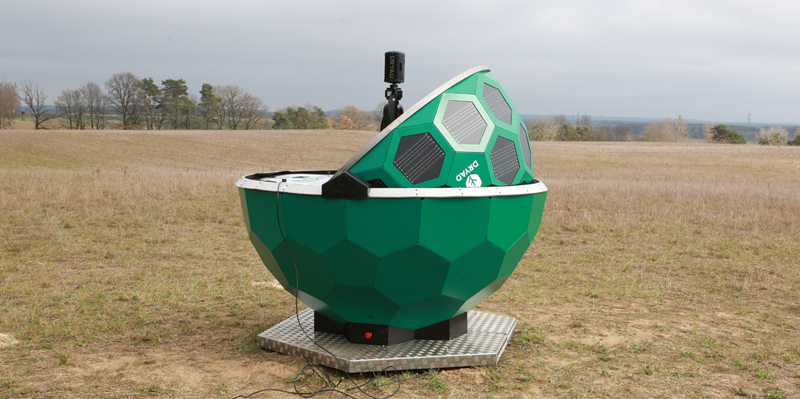£1 million to the good and 12 years on, Spicers gains more from TruckStops
Since introducing the TruckStops routing and scheduling system from MapMechanics over twelve years ago, office products wholesaler Spicers (www.spicers.net) has saved âin excess of one million poundsâ in its transport and logistics activities.So says Richard Slade, logistics manager in the companyâs logistics management team, who was involved in the purchase of the original TruckStops licence.âSince then itâs become an indispensable tool for us,â he says. âWeâve used it for everything from network planning to fleet rationalisation. Weâve even used it to model travel to work by our own staff.â He pays tribute to the support heâs had from MapMechanics over the years. âWe havenât often needed to call on their resources, but on the rare occasions when weâve done so, theyâve always given us outstanding service.âIn a major network review, TruckStops helped reveal an opportunity to close one of the companyâs regional distribution centres at Nottingham. âTruckStops showed that we could cover the same work load from other bases, but at significantly lower cost,â Richard Slade explains.Now the company is reaping yet more benefits from TruckStops by harnessing the feedback from a new real-time proof of delivery system. Delivery vehicles have been equipped with handheld terminals so that drivers can transmit proof of delivery details back to base in real time via GPRS wireless network. âThis has given us an unprecedented amount of accurate delivery data,â Richard Slade explains, âwhich makes it much easier for us to check planned against actual performance.â Among the benefits, he says, this means the company can verify TruckStops delivery schedules, ensuring that they are achievable.Spicers is Britainâs biggest office equipment wholesaler, supplying everything from paperclips and stationery to furniture. It operates from a central warehouse outside Cambridge and a network of eight regional distribution centres at Birmingham, Belfast, Bristol, Glasgow, London (three sites) and Manchester. Goods are trunked to these sites from Cambridge on Spicersâ trunking fleet, predominantly using double-deck trailers, and are then delivered to wholesaler and retailer customers by a fleet of 110 delivery vehicles. The transport delivery operations are provided by a mix of in-house and third party-contractors.When Spicers introduced TruckStops it was only the second UK user to adopt it. MapMechanics then traded under its registered name, Kingswood Ltd, and operated from a base at Kingswood Road in west London. In recent years it has adopted MapMechanics branding and the URL www.mapmechanics.com to reflect its business focus more closely.Right from the start, Spicers used TruckStops on a strategic basis, rather than for scheduling loads dynamically from day to day. âI realise many other businesses now use TruckStops very effectively to plan day-to-day deliveries,â Richard Slade acknowledges, âbut when we adopted it computers were slower and integration was more of a challenge. We took a pragmatic view; we wanted quick results.âBy using TruckStops to re-plan its fixed delivery routes, Richard Slade says he succeeded in achieving the desired benefits. âWe made savings within the first six weeks by cutting our fleet requirement by two vehicles.âSince then Spicers has continued to use TruckStops on an ongoing basis to check, monitor and reassess its delivery strategy. âWe operate in a highly competitive environment,â Richard Slade says. âOur customers expect deliveries within very tight time windows â as little as fifteen minutes â and some of them require up to three deliveries a day. So thereâs a constant need to re-examine our routes, to squeeze more efficiency from them, and to take account of new operational requirements.âThe pragmatic approach has been maintained.âWe donât insist that local managers and drivers slavishly accept every schedule proposed by TruckStops, but we tell them that if they want to vary anything, they have to do it with the resources TruckStops proposes.â He adds: âWe know from experience that TruckStops will never be far out, but this way we avoid being over-prescriptive.âHe says TruckStops has proved ideal over the years for âwhat-ifâ modelling. âFor instance, we might look at deliveries from three existing depots. TruckStops allows us to consider vehicles at all three bases as a single pool, and can show us opportunities to transfer customers between depots, to reduce the fleet, reduce operating miles or to dispense with a depot altogether.âTruckStops has also proved its worth on exercises that have more of a âblue-skyâ quality. âFor example, not long ago we gathered all the delivery times and details for five depots and ran them through TruckStops, paying particular attention to the spend per customer. This helped us determine which customers could be served more economically by carrier than with our own vehicles.âHe adds: âIt also highlighted remoter areas where it might be worth reconsidering whether we should be running our own vehicles at all.âOther applications for TruckStops have included analysis of transhipment opportunities, and recalculation of routes where noise might be a factor. âWe do a lot of night-time deliveries, sometimes to unstaffed premises, and often have to take noise into account.âSo powerful has the influence of TruckStops become at Spicers that, unusually, the way the company runs its picking operation differs from established logistics practice. âRather than pick product and then ask TruckStops how to schedule the deliveries,â Richard Slade says, âwe work out the optimal delivery schedule and then arrange the picking to fit it. I donât know why more operators donât take this approach.âHe admits that it is not always possible to drive all picking on this basis, âbut if we can, we do, and we find it works very well for us.âSometimes Spicers even uses TruckStops to help its customers remodel their own delivery operations. Many retailers run in-house delivery fleets, and Spicers sometimes agrees to input their delivery data into TruckStops and assess the opportunities for savings.âThe solution isnât always obvious,â Richard Slade says. âWith one company, we found they were running one delivery vehicle miles off its local route to serve a single customer. We question the value, but the explanation was that it was a highly prestigious company, and worth the extra expense. So our recommendation was for the retailer to seek other customers on the delivery corridor to offset the added cost of serving this one.âThe original version of TruckStops purchased from MapMechanics by Spicers was a DOS-based application. Nowadays the company uses the latest graphically-based TruckStops Professional version, which runs as a native Windows application, along with GeoConcept mapping.
Author: Maria Lotycka, MapMechanics, London
Bio.: email: [email protected]
For more information visit:
Subscribe to our newsletter
Stay updated on the latest technology, innovation product arrivals and exciting offers to your inbox.
Newsletter

